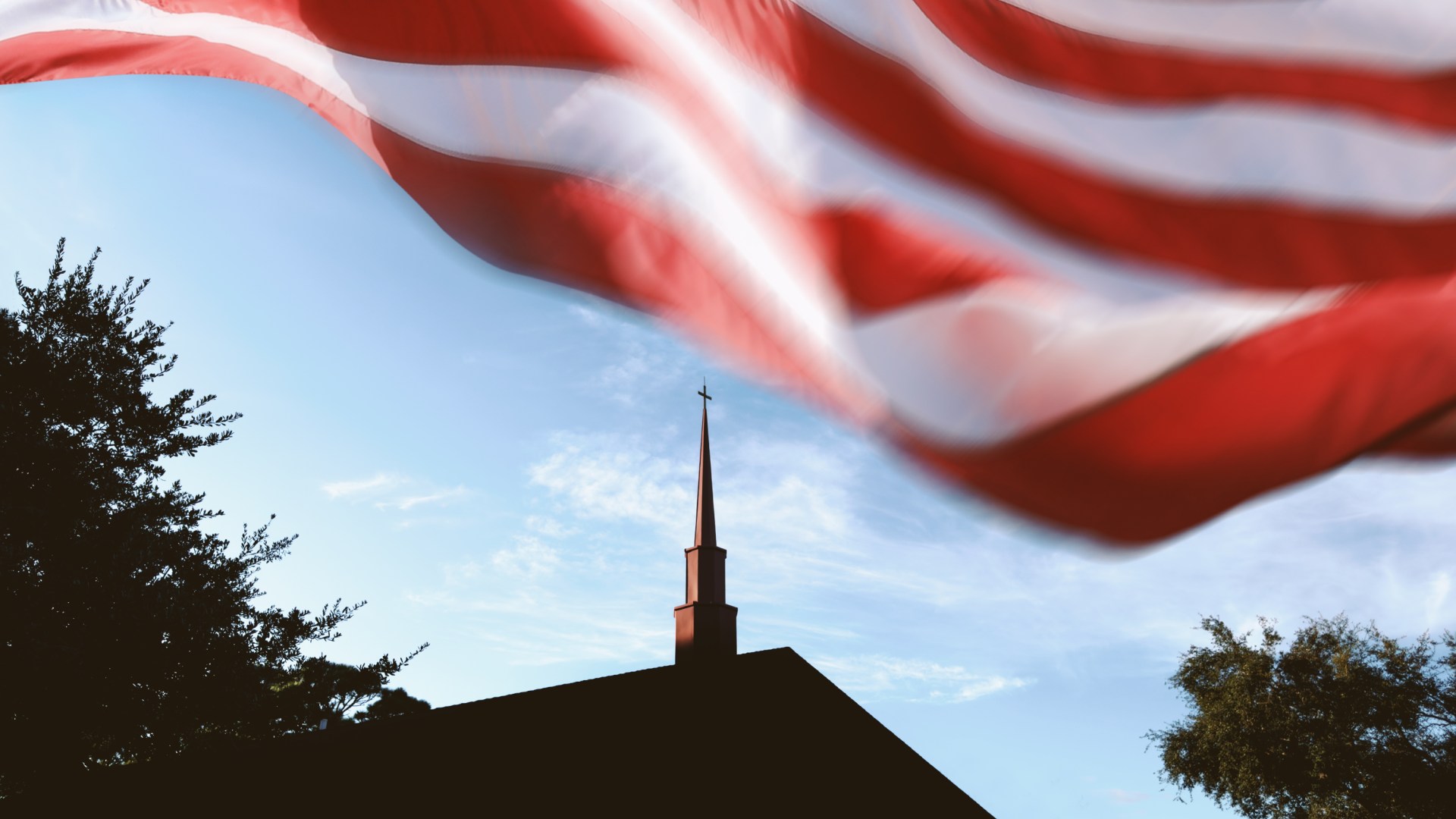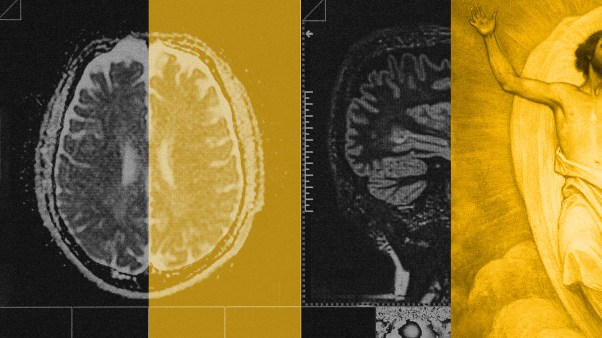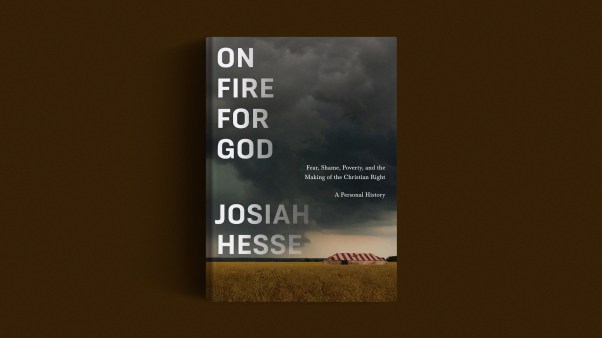As a faith-engagement staffer for politicians, I’ve spent many Sundays in the back seats of black Suburbans. I was typically there with a driver and a candidate making a campaign stop at a church. It was my job to work with pastors or their teams and set up these events. Sometimes, a church leader supported the candidate. Other times, leaders were just feeling the person out. But regardless of how they felt, two questions always came up: “How do we do this without compromising the church’s moral and spiritual authority?” and “How do we make sure we protect the church’s tax-exempt status?”
Last week, the IRS seemed to take the second question off the table. In a court filing, the agency declared that political speech at a church or “through its usual channels of communication on matters of faith” does not run afoul of the Johnson Amendment, a provision of the tax code that bars tax-exempt organizations from engaging in political campaigns. The filing was made in a legal case brought by two evangelical churches and broadcasters who argued the provision violated their First Amendment rights. The IRS didn’t ask for a full repeal of the Johnson Amendment, which it rarely enforces against houses of worship. But the agency has essentially green-lighted church leaders who want to endorse candidates without worrying an officer will come knocking on their doors.
The shift has sparked fervent debate. Some celebrated it as a triumph for religious liberty or an opportunity for more active social justice work, while others fear it will embroil churches deeper into partisan politics. If we as the church can explicitly endorse politicians, the question becomes – should we?
Personally, I am proud to have done most of my work with Black churches in my hometown of Chicago, a city that’s known to be politically active. The type of work I did extends beyond Black churches and blue cities, but I believe the rich legacy of political engagement inside the Black church can be a good model for us to follow in this new moment.
At its best, the Black church has shown that churches wield significant power not by directly backing candidates but by shaping local communities and the nation’s consciousness. When segregation and racial discrimination prevented Black people from expressing their political views through rotary clubs or the local chambers of commerce, the Black church stepped forward to fill the role of mediating Black political power. This political engagement was formed at a time when the wider society largely commended faith, family, and Christian sexual ethics. But because of rampant racism, the church served as a central hub for advocacy focused on securing civil rights.
The mission transcended politics and was rooted instead in the biblical mandate to pursue justice and love mercy. Over time, the issues the Black church advocated for—equal justice, expanded voting rights, secure housing and health care—–came to be championed more by one political party, leading most congregants to affiliate with the Democratic Party. Lately, however, the political dynamics have slowly begun to shift. Cultural topics, such as LGBTQ issues and the role of faith in society, are now dominant in political debates. And the consensus around which major political party represents the best hope for Black material prosperity is beginning to fray.
The history of the Black church shows that when civil laws unjustly muzzle our voices, some convictions compel us to speak anyway. However, when it comes to unwise alliances that can diminish our eternal message, I know as a pastor that it’s best to practice restraint. While some on the left and the right have reacted to the IRS news as an opportunity to rush into partisan advocacy, churches should instead discern how to speak courageously on issues while keeping our ultimate allegiance not to candidates or parties but to the kingdom of God.
Church occupies a unique position of power, as every candidate and activist knows. As a faith-engagement staffer, I knew it was unlikely that I would hear a pastor say, “Hey, everybody, go vote for candidate X,” but I still wanted and worked with leaders to discuss my candidates and issues. Some might see this delicate dance as confusing and simply want churches to pick a side. But even though navigating these nuances can sometimes seem silly, it’s good for churches to keep these boundaries intact. While we can engage with politics and make moral evaluations, we don’t have to align ourselves with earthly political kingdoms.
Some Christian civic organizations can offer help in this area. The And Campaign, for example, recommends presenting all candidates who want to speak in churches with a questionnaire focused on key moral and political issues, intentionally designed to avoid partisan bias. Like the angel of the Lord whom Joshua encountered before the battle of Jericho, we can demonstrate that the proper question is never “Whose side is God on?” but rather “Who is on God’s side?”
As a church leader, I’m convinced that if pastors begin backing candidates from the pulpit (something we have already seen both on the right and on the left), we not only lose credibility but also hinder our congregants from building relationships with believers who may vote differently from them. Congregants will filter our words on matters of public importance through the lens of partisan politics and its constricting loyalties. And the price of political pragmatism will be the loss of prophetic witness. Choosing candidates in elections is incredibly important work. And yet it is not the church’s role. The body of Christ is called to embody a moral clarity that transcends any political candidate or party. Elections can be zero-sum games, and while there are often “better” choices, there is rarely, if ever, a perfect choice.
The church’s true mandate is to form disciples whose faith shapes every aspect of their lives, including their political engagement. It’s the same principle our high school math teachers taught us when they told us to “show our work” on assignments. They understood that the process by which we arrive at answers often matters more than the answers themselves.
If there is a silver lining to the IRS’s recent filing, it may be that churches no longer have an easy escape route from tough conversations. For too long, many pastors and congregations hid behind the Johnson Amendment, using it as a reason to explain why they couldn’t address important issues. But the church ought to have something to say about justice, righteousness, poverty, racism, and the dignity of human life. Too often our silence has spoken louder—and more harmfully—than our public voice ever could, signaling that the church is either unconcerned about the public good or unprepared to meaningfully contribute to it.
The responsibility for our witness lies squarely on our own shoulders. With the IRS’s new stance, politically passionate congregants or people in a black Suburban might push—or plead—for candidate endorsements. I would caution them to refrain from doing so. But if they don’t, pastors should be prepared to remind them of what Jesus said to the political officials of his day: The kingdom we serve, ultimately, “is not of this world” (John 18:36).
Chris Butler is a pastor in Chicago and the director of Christian civic formation at the Center for Christianity & Public Life. He is also the co-author of Compassion & Conviction: The And Campaign’s Guide to Faithful Civic Engagement.

















